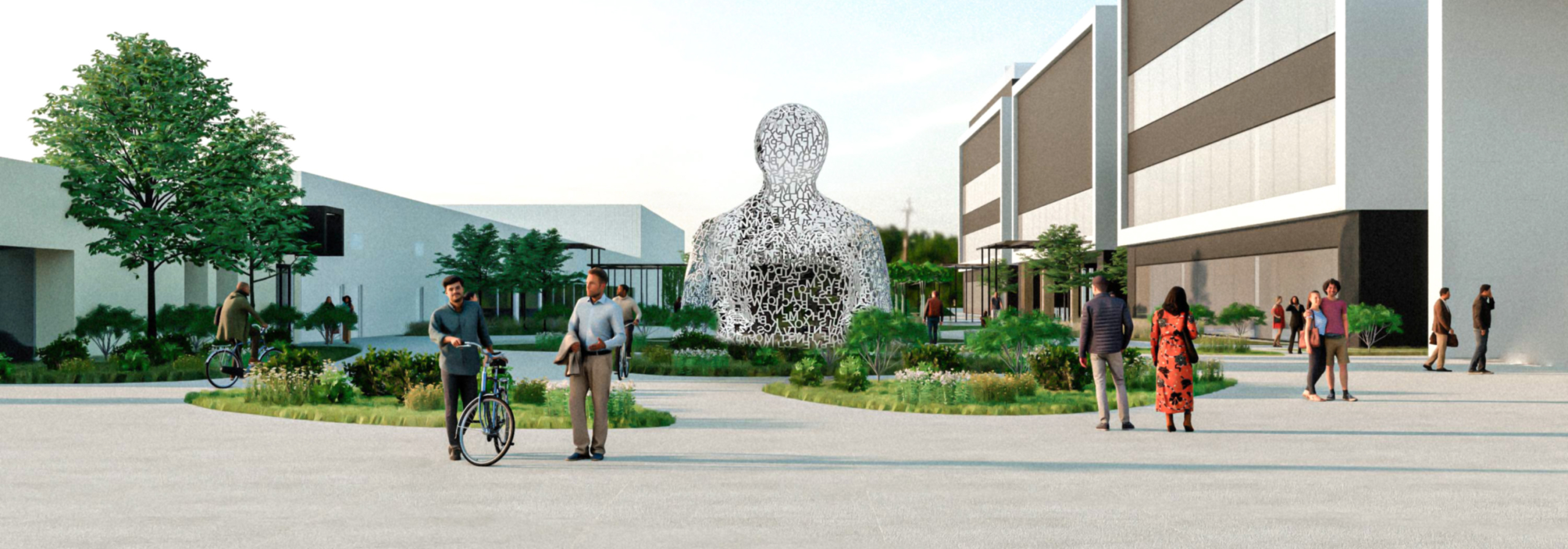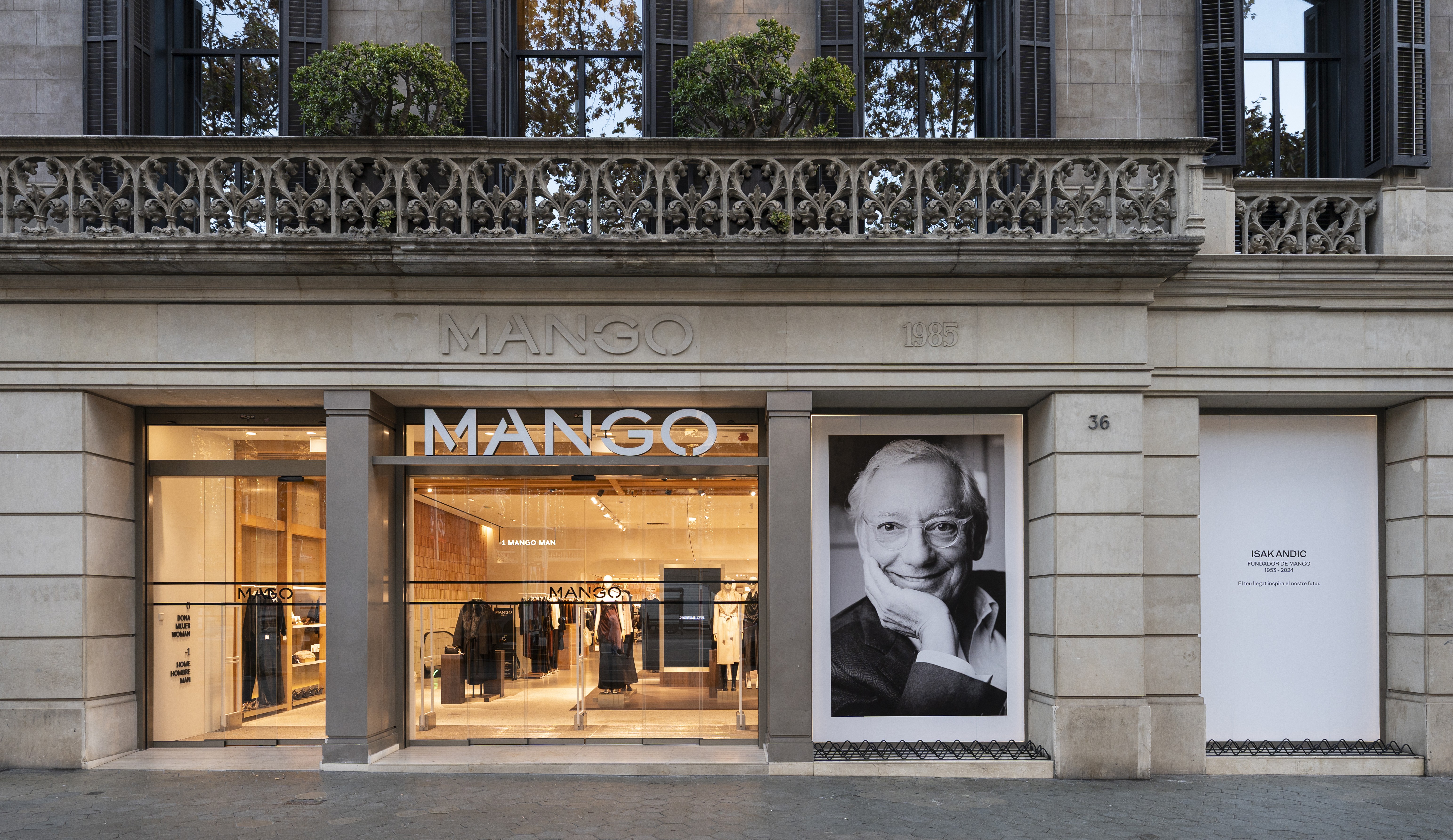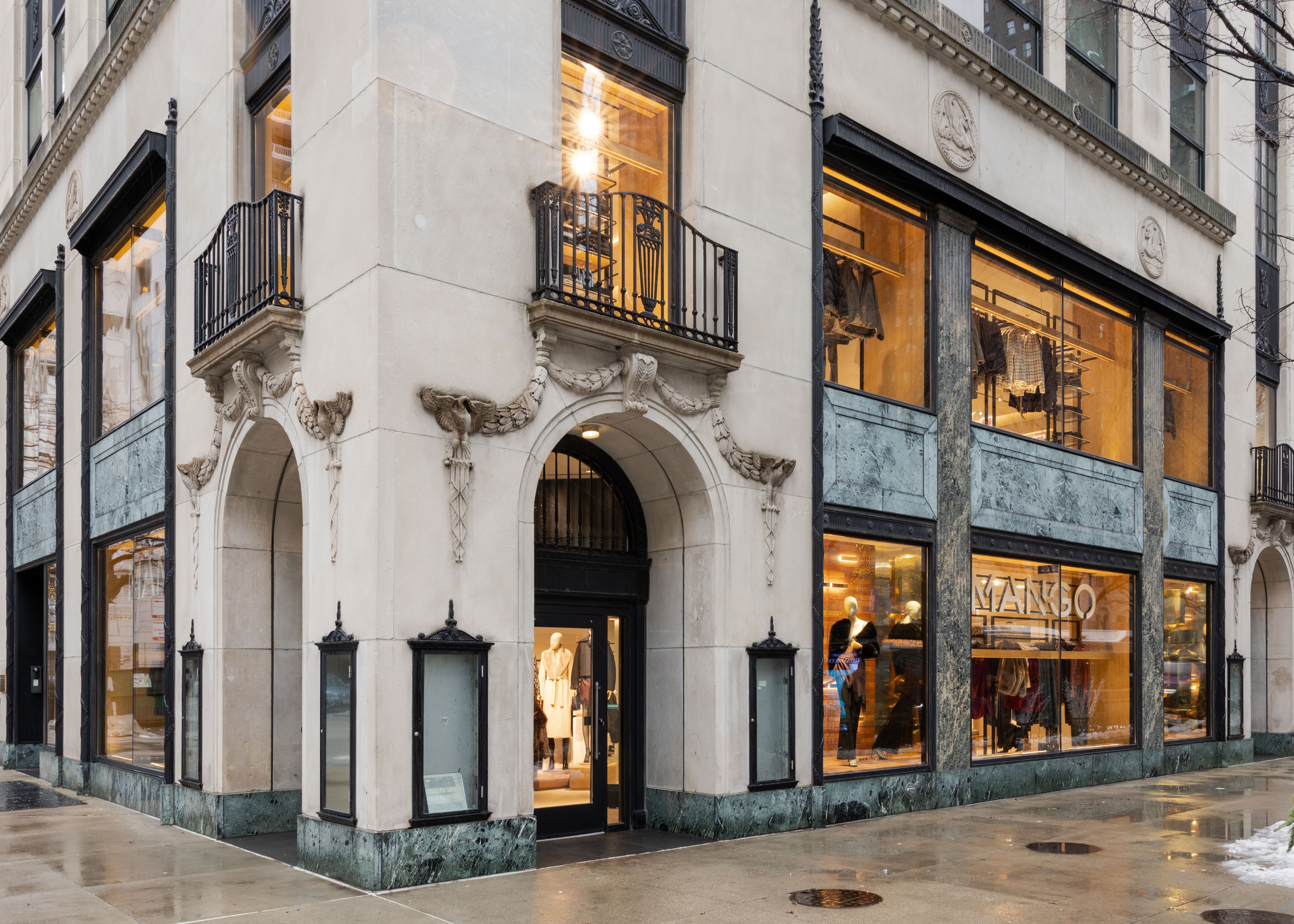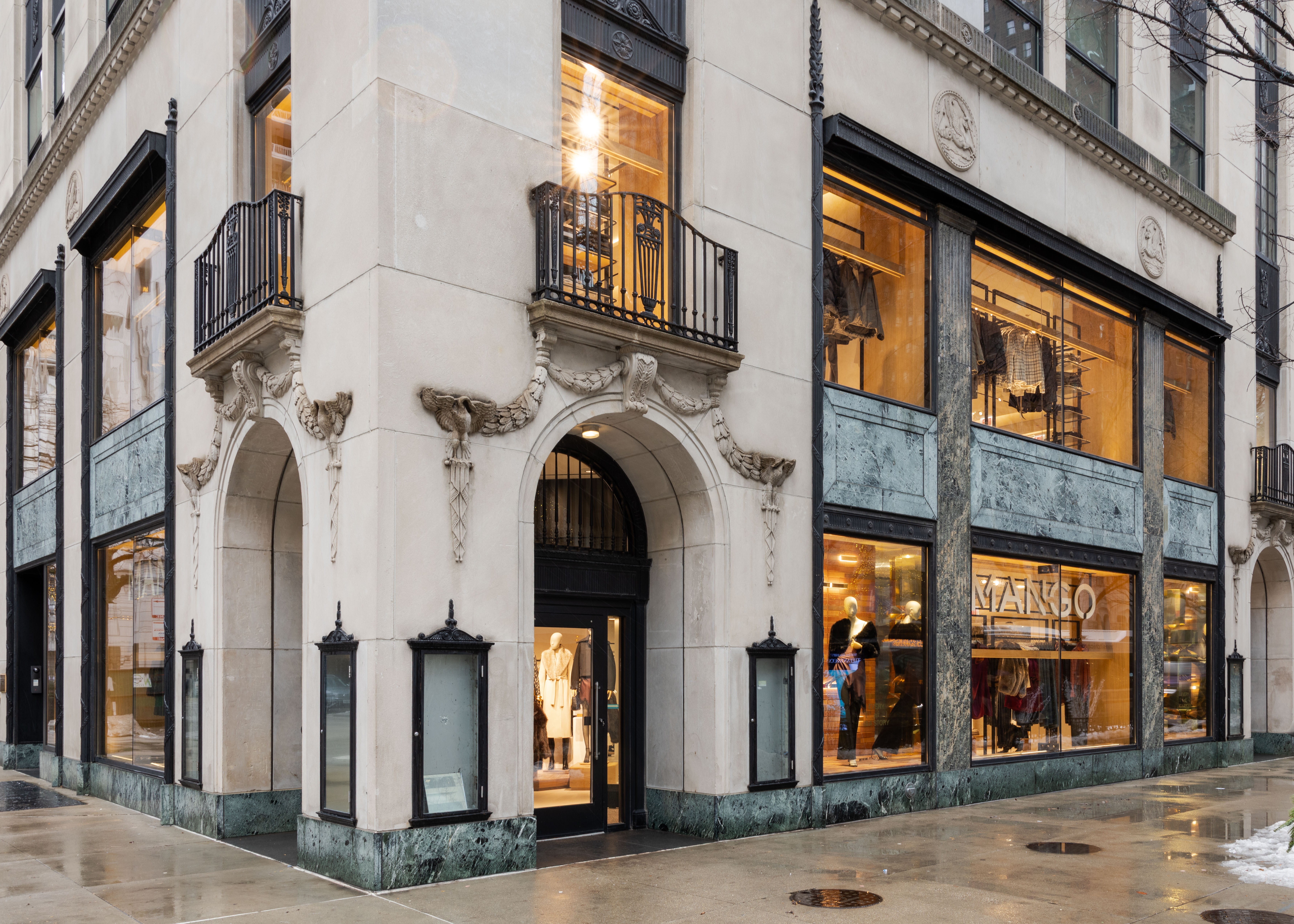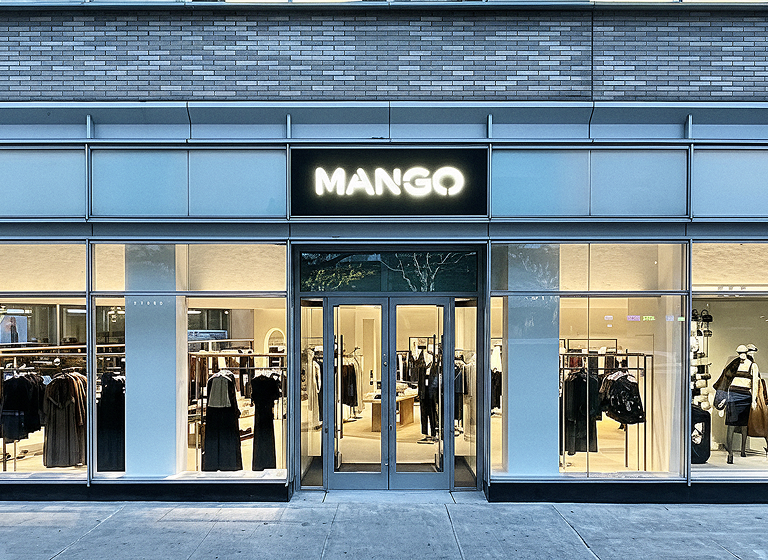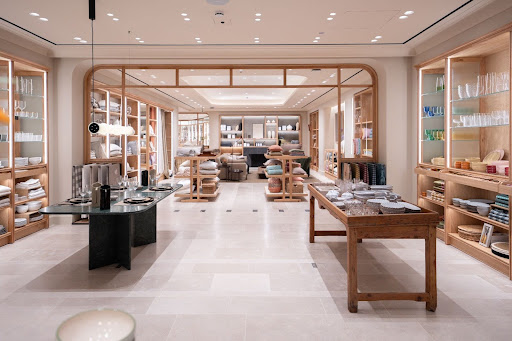Mango passes the halfway point of the building works for its new headquarters, which will connect to a green area of 22 hectares
Descargar fotos
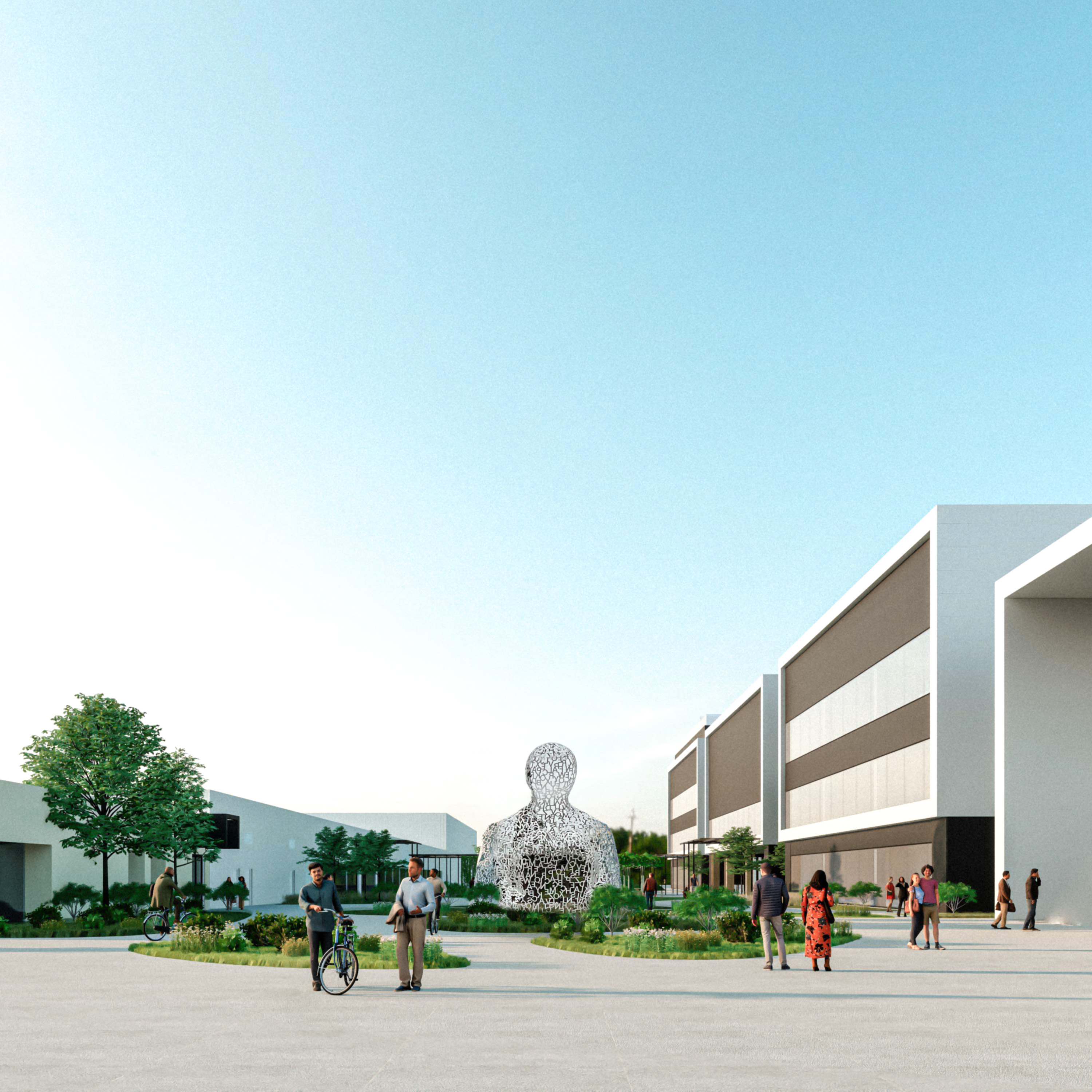
1 photos in total
Mango passes the halfway point of the building works for its new headquarters, which will connect to a green area of 22 hectares
-
- The company is currently involved in the construction of its future corporate headquarters, which will connect to Parque de l’Hostal del Fum, a natural area equivalent to more than 22 football pitches with grassy meadows, streams and ponds inhabited by various species of local fauna and flora.
- The Mango Campus, which will house over 2,200 employees, represents a total investment of 42 million euros, and has been conceived as a R+D+i centre that will allow the brand to face and adapt to the future needs of the company.
- The new headquarters will comprise two office buildings interconnected via gardens and walkways, an auditorium for 200 people, a wellness centre con gymnasium, various showrooms and pilot stores, an external square and numerous green areas, among other installations.
- Sustainability is one of the strategic cores of the project, which is why the new Mango Campus has been designed with sustainable materials and incorporates energy efficiency measures. It will also have solar panels and 100% of the electrical energy consumed will from renewable sources.
Mango, one of Europe’s leading fashion groups, has passed the halfway point in the construction of its new headquarters, which is forecast to open in 2024, for which it has designed a pioneering office complex that will connect with the Parque de l’Hostal del Fum, a natural environment of more than 22.5 hectares, the equivalent of more than 22 football pitches.
The new Mango Campus, located in Palau-solità i Plegamans (Barcelona), will house more than 2,200 employees, who will benefit from this green enclave that adjoins the offices, made up of grass meadows, paths, streams and ponds, inhabited by numerous species of local fauna and flora (pine trees, holm oak trees, poplar trees, river bank trees, thyme, rosemary, basil, in addition to small mammals and birds), and through which a tourist train runs.
In the words of Toni Ruiz, Mango’s Chief Executive Officer, “the new Mango Campus will represent a milestone in Mango’s history. On the one hand, the new, open and modern work environment will be a motor of change towards a new, more flexible and collaborative form of working for our employees. On the other, the opening of the Campus will be the perfect forty-year anniversary of the company”.
The Campus, which represents a total investment of 42 million euros, will comprise two office buildings interconnected via gardens and walkways that will house various work spaces for the different departments and activities of the company: design, dressmaking, samples, catalogues, photography sets, etc.
The Campus will also have a business centre with close to 25 meeting rooms and four multi-purpose rooms, two cafeterias with a canteen, an auditorium with capacity for over 200 people, a wellness centre with gymnasium, various showrooms, five pilot stores, an external square, green areas and a relaxation area and chill-out terrace on one of its buildings with capacity for over 300 people.The external areas and its gardens will extend throughout the Campus, as well as in the internal and external patios, where it will be possible to go out to work, including under a movable roof. Furthermore, the company will apply the concept of rewilding beauty in its gardens, which will promote the predominance of local species, and incorporating species that existed before the construction of the building.
Background and current status of the project
The current Mango Campus was approved by Mango in 2020, within the context of a global pandemic, and in order to give the company a new headquarters building, a new corporate culture and to create a new way of working for its teams. The project, which will be fully complete in 2024, is currently at the halfway stage of construction.
Between 2021 and June 2022, the company focused its efforts on carrying out preliminary tasks to the construction related to site clearing and minor works, among others.
During the second half of 2022, Mango received the building permit and started construction on the structural part of the new complex, dividing the process into different areas (infrastructure, installations, flooring, etc.), 80% of which had already been tendered and awarded to different leading suppliers within their area of expertise in the construction sector.
For the overall conception and design of the project, Mango has counted on the collaboration and consultancy of two acclaimed architectural firms: GCA Architects and Cotecno, based in Barcelona and A Coruña respectively, who are also working together on the executive development and management of the project. For the execution of the landscaping works, the company has counted on the collaboration of the specialist firm AELAND.
A sustainable campusAs part of Mango’s commitment to sustainability, the architectural project of its new Campus has been designed to generate a low environmental impact, reduce CO2 emissions into the atmosphere and convert its offices into spaces that are more respectful to their surroundings and the planet.
With this in mind, the new Mango headquarters will install electrical charging points in its access areas and solar panels on the roofs of its two buildings and on the canopy that connects them, which will produce an annual renewable electrical energy supply of up to 1,040 MWh and result in a reduction in CO2 emissions of approximately 260 Tons, the equivalent of planting 27,500 trees.
In addition, the company has signed a renewable energy supply agreement under the PPA system with Acciona for the next ten years, whereby Mango will guarantee that 100% of the electrical energy consumed in its central offices (including the new Campus), its logistics warehouse in Lliçà d’Amunt (Barcelona) and ten of its largest stores in Spain will come from renewable sources.
The new headquarters will also implement energy efficiency measures such as high-efficiency and low consumption LED lighting, a system to regulate and control the building that will allow remote switching on and off, monitoring systems for energy consumption and rest rooms with low-consumption devices; as well as other mechanisms, such as aerothermics and inverter technology for the heating and ventilation of the buildings, which incorporate heat recovery systems to reuse the energy expelled to the outside.
To control its water impact, the Mango Campus will feature advances such as a system for the collection and use of rainwater for various purposes, such as the watering of green areas and gardens, of the roof of the new module to make it an urban garden and to make the central river bed an aquifer through wells in the flower beds.
As for the choice of building materials for the new Mango Campus, particular attention will be paid to their sustainable origin, through the selection of recycled and recyclable materials. Consequently, the work areas will feature natural rubber on the floors finished with environmentally-friendly and sustainable photo-catalytic paint to improve the quality of the inside air.
The roofs will be created using panels manufactured with recycled clothing fabrics and the coverings will be produced employing environmentally-friendly manufacturing processes, like the porcelain floors for the entrance and corridors.
We have also sought reparable finishes in line with the made to last philosophy in order to extend their useful life, adapting them to the changes and flexibility demanded by the building, therefore all work areas will feature detachable flooring over the technical floor to allow the areas to be reconfigured.
Similarly, we have considered aspects relating to acoustic comfort and air quality, therefore the auditorium will feature carpet flooring, the meeting rooms will be clad in recycled textiles and the industrial-look ceilings will be fitted with sound-absorbing panels to ensure a high level of acoustic comfort in all work areas. This strategy is likely to result in the Mango Campus being awarded a high score on the BREEAM sustainability certificate.
A new way of workingWith this project, Mango aims to create a leading working model and go one step further in the way it works. The Mango Campus aims to generate a new way of collaborating, connecting, learning and innovating within the organisation. Flexible, open and inclusive workspaces designed to foster team work and community creation, while promoting the well-being of all employees with a unique and integrated culture.
The walkways that connect the different zones of the buildings and cross the landscaped patios, together with the main walkways, will encourage relationships between departments. What is more, to promote flexible working, the offices will be equipped with a wide range of ambiences for the work stations, with open meeting tables, informal meeting areas, closed meeting rooms, phone booths and areas for individual concentration.
The company is also working with Ilunion, part of Grupo Social ONCE and a leading organisation in Spain, to guarantee universal access to the building, especially for people with reduced mobility, as well as numerous measures and initiatives to guarantee the health and safety of employees in the work environment, such as heating and ventilation, ergonomics, lighting, etc.
Mango, one of the leading international fashion groups, is a global company with design and creativity at the heart of its business model and a strategy based on constant innovation, the pursuit of sustainability and a complete ecosystem of channels and partners. Founded in Barcelona in 1984, the company closed 2024 with a turnover of over 3.3 billion euros, with a third of its business coming from the online channel and a presence in more than 120 markets. More information at mangofashiongroup.com.
